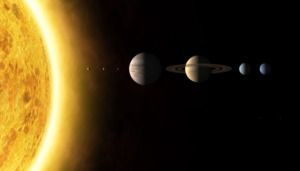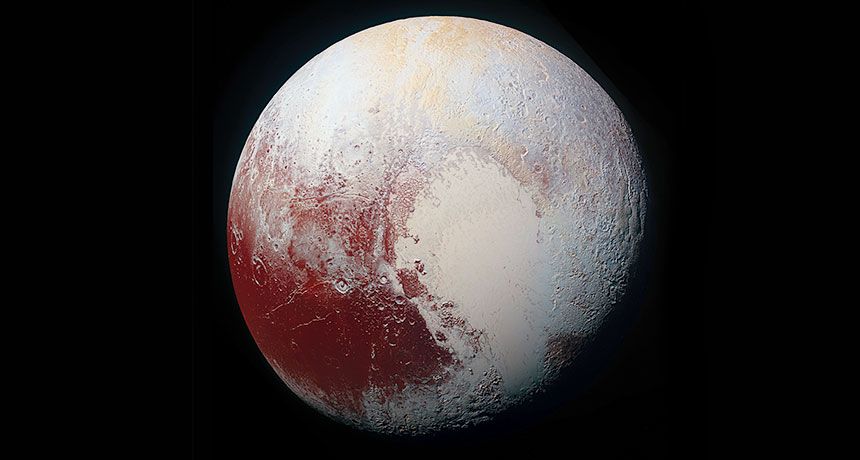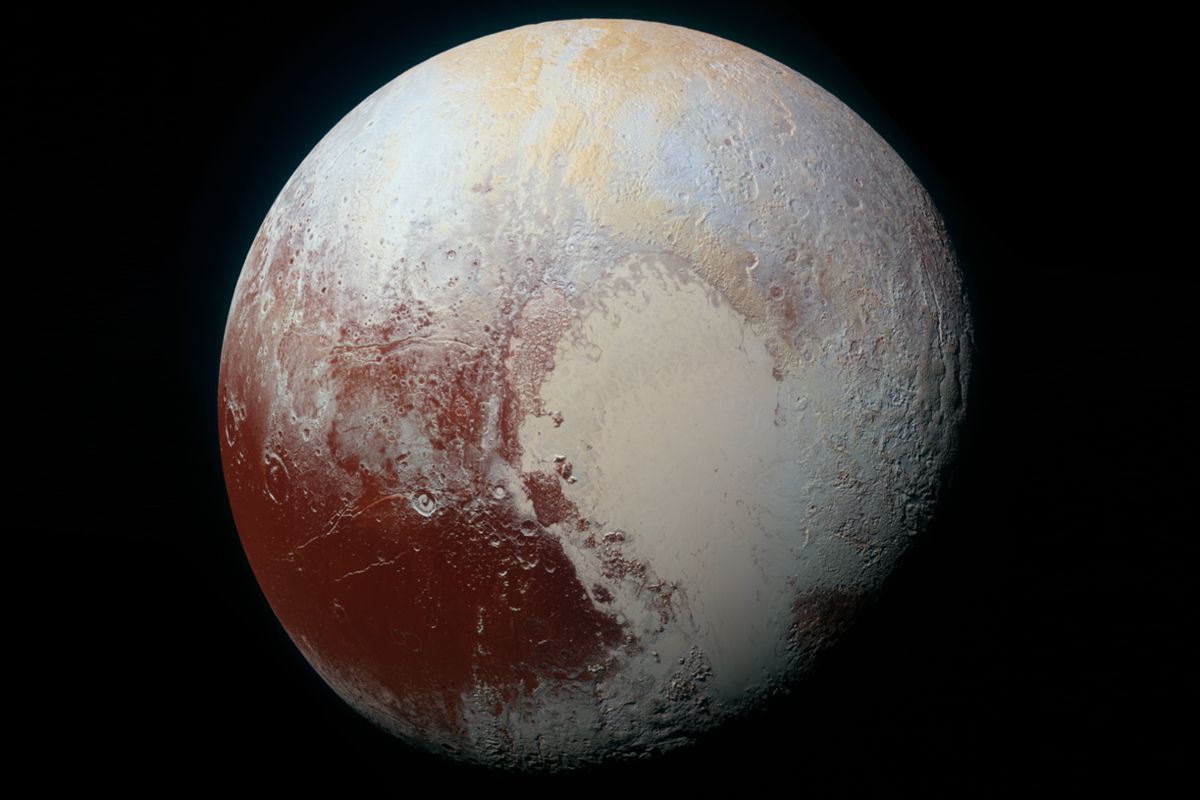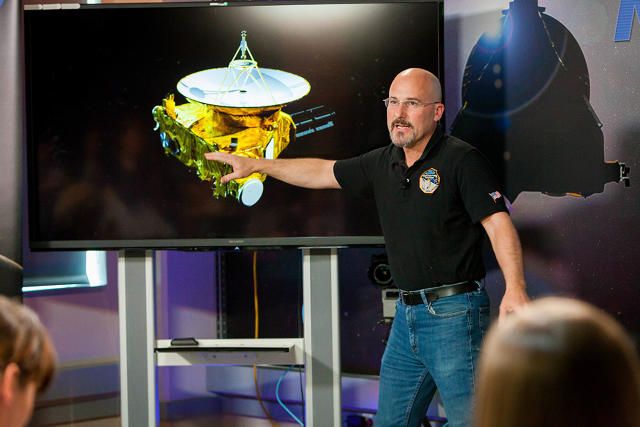What’s wrong with this illustration of the planets in our solar system? »
For one thing, it suggests that the planets line up for photos on the same solar ray, just like baby ducks in a row. That’s a pretty rare occurrence—perhaps once in several billion years. In fact, Pluto doesn’t even orbit on the same plane as the planets. Its orbit is tilted 17 degrees. 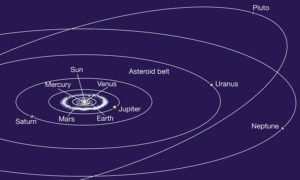 So, forget it lining up with anything, except on rare occasions, when it crosses the equatorial plane. On that day, you might get it to line up with one or two planets.
So, forget it lining up with anything, except on rare occasions, when it crosses the equatorial plane. On that day, you might get it to line up with one or two planets.
But what about scale? Space is so vast. Perhaps our solar system looks like this ↓
No such luck! Stars and planets do not fill a significant volume of the void. They are lonely specs in the great enveloping cosmic dark.* 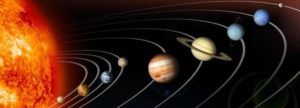 Space is mostly filled with—well—space! Lots and lots of it. In fact, if Pluto and our own moon were represented by just a single pixel on your computer screen, you wouldn’t see anything around it. Even if you daisy chain a few hundred computer screens, you will not discern the outer planets. They are just too far away.
Space is mostly filled with—well—space! Lots and lots of it. In fact, if Pluto and our own moon were represented by just a single pixel on your computer screen, you wouldn’t see anything around it. Even if you daisy chain a few hundred computer screens, you will not discern the outer planets. They are just too far away.
Josh Worth has created an interactive map of our solar system. For convenience, it also assumes that planets are lined up like ducks. But the relative sizes and distance between planets are accurate. Prepare to change your view of the cosmos…

Just swipe your finger from the right edge of the screen to move away from the sun. Despite a fascinating experience (and many cute, provocative Easter eggs hidden between the planets), few readers swipe all the way out to Pluto and the author credits. On my high-resolution monitor, it requires more than a thousand swipes. Imagine if the Moon had been more than 1 pixel…It would take a long, long time! I would rather go out to dinner and a movie. But I urge you to travel at least to Jupiter. At 1/7 of the trip to Pluto, it should take less than 5 minutes.
On this scale, you won’t see the 1½ or 2 million asteroids between Mars and Jupiter. They aren’t large enough to merit a pixel. As Josh states, “Most space charts leave out the most significant part – all the space.” (an Easter egg at 1.12 billion km on the map).
* I borrowed this phrase from my former Cornell professor, Carl Sagan. He uses it in Pale Blue Dot [timestamp 2:14.]. This video tribute became a touchstone in my life; even more than having Sagan as a professor and mentor.
If you view it, be sure to also view Consider Again, Sagan’s follow-up in the video below. It is a thought-provoking observation of human-chauvinism throughout history—even among ancient Greeks. Carl isn’t the first atheist, of course. But he is eloquent in describing mankind’s ego trip: The delusion of a privileged place in the universe, or the religious depiction of God and his relationship with our species.
Related:
- Carl Sagan Pale Blue Dot, a most impactful short video
- Consider Again the Pale Blue Dot, the arrogance of man throughout history
- Scale of the Universe: Powers of 10 (Charles & Ray Eames)
- Learn more about Charles and Ray Eames at Snore & Guzzle
- Our Universe is Finely Tuned for Life—Why?
Credit: ▪ Josh Worth and Sachin Gadhave who offers an illustrative answer at Quora.com
Philip Raymond co-chairs Crypsa & Bitcoin Event, columnist & board member at Lifeboat, editor
at WildDuck and will deliver the keynote address at Digital Currency Summit in Johannesburg.
